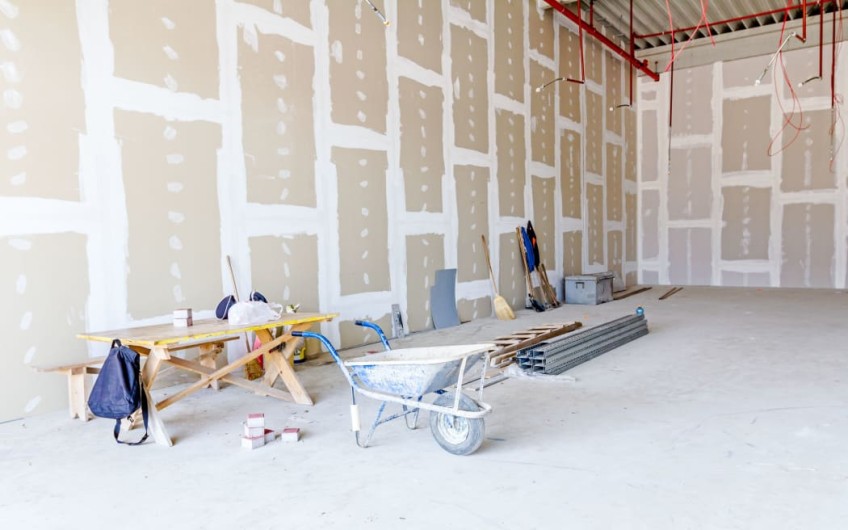Gib shortage: Taskforce will lead to better supply, member says

A member of the ministerial taskforce on plasterboard shortages is confident it will lead to a greater range of imported products becoming available.
Fletcher Building's Gib has about 95 percent of the market, but demand has outstripped supply leaving some housing projects unfinished and some builders struggling to stay afloat.
The task force announced on Tuesday will look at whether regulation of alternative plasterboard products is needed, ways to streamline the use of products untested in the market, new distribution models, advise on consent approaches and act as a forum for related supply chain concerns.
Fletcher Building expected the plasterboard market will come back to equilibrium by October, the company said in documents on Wednesday, ahead of its investor day.
Supply would increase by 10 percent in the next four months, after it reconfigured its factory, increased imports and issued royalty-free licenses to 10 parties to import foreign made plasterboard, which might breach its trademark. Fletcher Building's new plasterboard factory near Tauranga is due to open next year.
Merchants would also run an emergency allocation fund to help smaller customers in the interim, it said.
Taskforce member Naylor Love chief executive Rick Herd said there had to be competition in the market.
"My personal agenda would be to see the construction industry educated on what alternative products to Gib products are available to import and what are available through already set up agencies ... and what is the equivalency of those products to Gib products," Herd said.
"We need to have alternative competition in the market" - Naylor Love chief executive Rick Herd duration 6′ :19″ from Morning Report Add to playlistPlaylist Download as Ogg Download as MP3 Play Ogg in browser Play MP3 in browser
It was possible to get alternatives to New Zealand at a reasonable scale, he said. The standard Gib equivalent could be imported more cheaply though specialised plasterboard was generally more expensive than the local product, he told Morning Report.
Naylor Love and other large organisations imported their own plasterboard but those doing smaller projects - particularly housebuilders - did not have the opportunity or resources to bring in products from overseas.
Herd believed the taskforce would bring about an improvement in supply.
"In another 12 months we will find that there is a far ... greater range of imported product available in New Zealand - and tested, high quality product.
"I'm confident with the government support, the Construction Accord, we can get industry educated on what's available and also start doing testing on other products which are becoming available.
"The Gib suite of products is a fine product that's served New Zealand well. There's a very good reason why it's 95 percent of the market, because it is a good product. But we have to, from exactly these points of view of shortages, and price gouging, we need to have alternative competition in the market."
If Fletchers had been importing alternative product to supplement their own, as he had heard was the case, that was the right thing to do. "If they've got a 95 percent share of the market they've got an obligation to the market to maintain continuity of supply."
Also on the taskforce are Registered Master Builders Association of New Zealand chief executive Dave Kelly, Simplicity Living managing director Shane Brealey, The Warehouse founder and chair of the Tindall Foundation Sir Stephen Tindall, an LGNZ representative and 2degrees founder Tex Edwards.
Fletcher Building said on Tuesday it would welcome constructive suggestions to solve the current supply problems.
It said it had already given nonexclusive, royalty-free licences to 10 parties to import foreign made plasterboard, which might breach Fletchers' trademarks.
The company had confirmed to Minister for Building and Construction Megan Woods it would "grant similar licences on similar terms to other parties until May 2023 after which time our new factory in Tauranga will be operational and more than meet the current demand requirements," it said.
Even if demand fell and production increased when the Tauranga plant came onstream, there still had to be long-term change, Herd said.





















